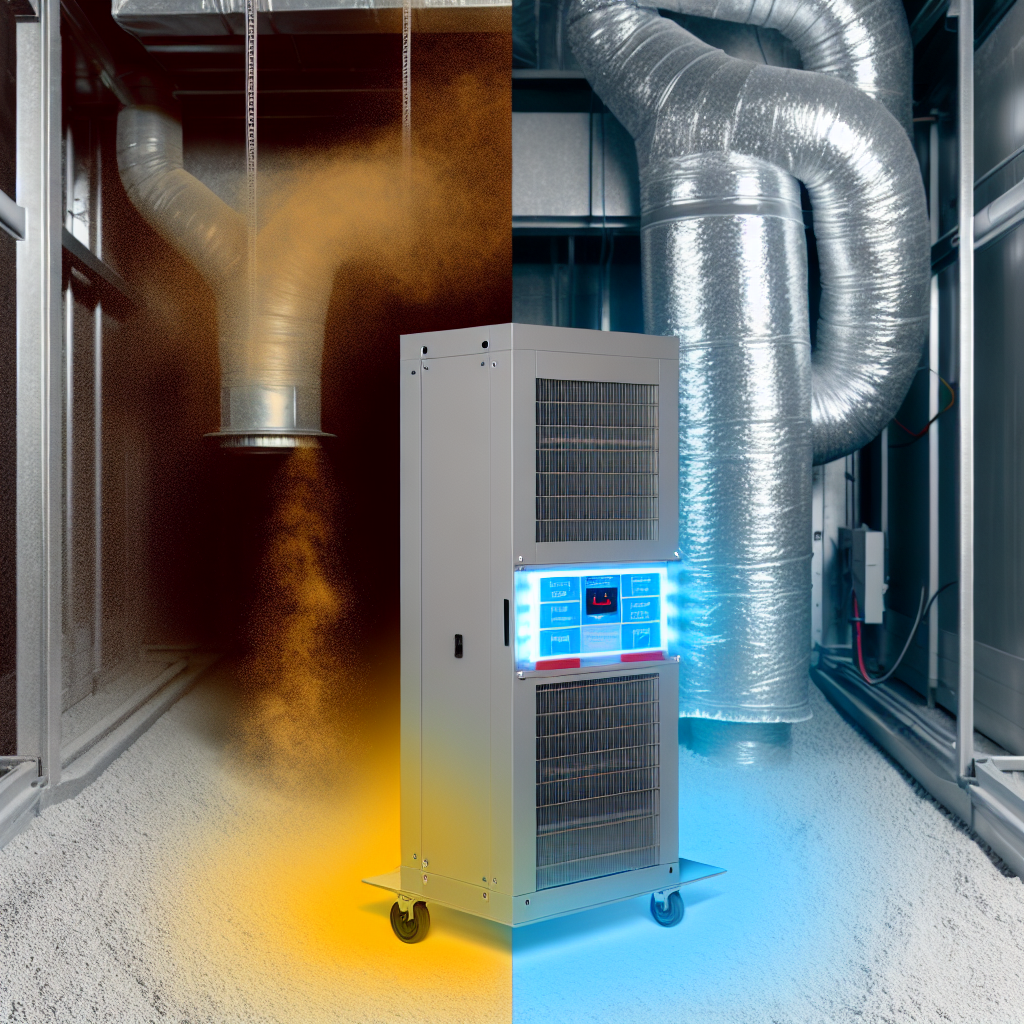Published: Mar 30, 2025

In recent years, the importance of indoor air quality has gained significant attention due to the realization that poor air quality can have adverse effects on health. One of the most effective solutions available for improving indoor air quality is the use of UV light air purification systems. These systems use ultraviolet (UV) light technology to cleanse the air of harmful particles and microorganisms, providing a range of benefits for both residential and commercial spaces.
UV light air purification systems utilize ultraviolet light to inactivate and destroy various airborne contaminants such as bacteria, viruses, mold, and allergens. The UV light emitted by these systems disrupts the DNA and RNA of these microorganisms, rendering them unable to reproduce and effectively neutralizing their harmful effects. As air passes through the UV light chamber in the system, these contaminants are targeted and eliminated, leading to cleaner and healthier indoor air.
One of the primary benefits of UV light air purification systems is the significant improvement in indoor air quality that they provide. By effectively eliminating harmful contaminants, these systems help reduce the presence of allergens and pathogens in the air, creating a healthier environment for occupants.
UV light purification systems can play a key role in reducing the spread of illnesses in residential and commercial settings. By neutralizing viruses and bacteria that circulate in the air, these systems help lower the risk of airborne transmission of diseases, especially in spaces where people gather closely.
UV light air purification systems are also effective in eliminating unpleasant odors from indoor spaces. The technology helps break down volatile organic compounds (VOCs) that contribute to odors, leaving the air fresh and clean-smelling.
By keeping the air clean and free of contaminants, UV light air purification systems can help improve the efficiency and longevity of HVAC systems. Cleaner air reduces the buildup of dirt and debris in the system, leading to fewer breakdowns and the need for maintenance.
Maintaining clean air through UV light purification can also contribute to energy savings. When HVAC systems are not bogged down by contaminants, they can operate more efficiently, resulting in lower energy consumption and reduced utility costs.
UV light air purification systems are environmentally friendly solutions for improving indoor air quality. Unlike some air purifiers that use filters or chemical treatments, UV light technology does not produce harmful byproducts or waste, making it a sustainable option for homes and businesses.
When considering a UV light air purification system for your home or commercial space, it is important to select a system that is sized appropriately for the area you want to treat. Additionally, look for systems that are installed correctly to ensure optimal performance and effectiveness in cleaning the air.
In conclusion, UV light air purification systems offer a range of benefits for improving indoor air quality and creating a healthier living or working environment. From reducing airborne contaminants to enhancing HVAC system efficiency, these systems provide a comprehensive solution for cleaner and fresher indoor air.

Our expert technicians are ready to assist you 24/7!
Contact Us Today!Read our latest articles for helpful information about heating, cooling, and air quality.
Maintaining good indoor air quality is crucial for reducing allergy symptoms during allergy season. Regular cleaning, p...
Read MoreRegular air duct cleaning offers a multitude of benefits, including improved air quality, enhanced energy efficiency, p...
Read MoreRecognizing signs such as age, rising energy bills, frequent repairs, uneven heating/cooling, and strange noises/odors...
Read MoreRegular HVAC maintenance is crucial for keeping your system running smoothly, avoiding costly repairs, and improving ene...
Read More